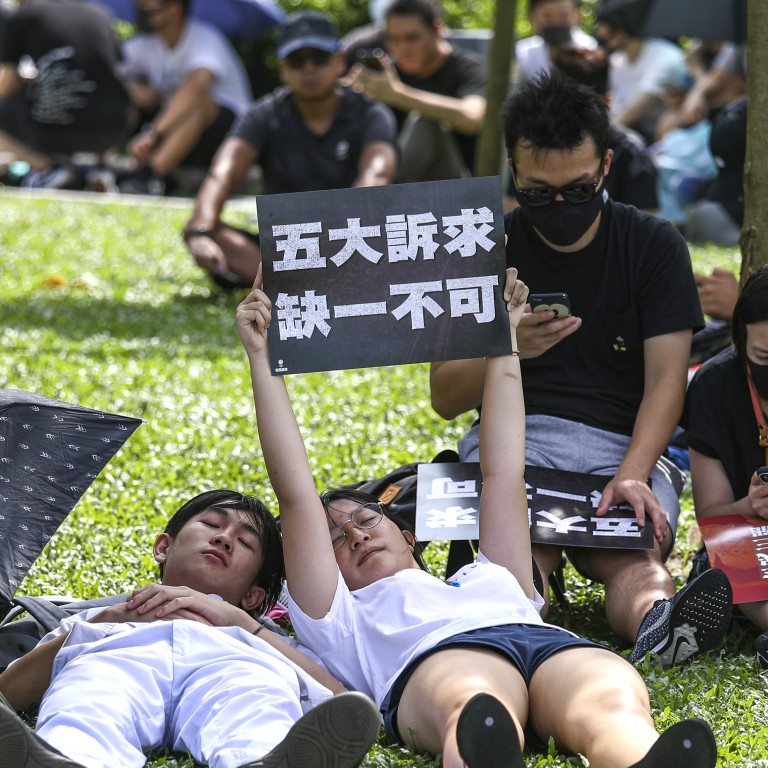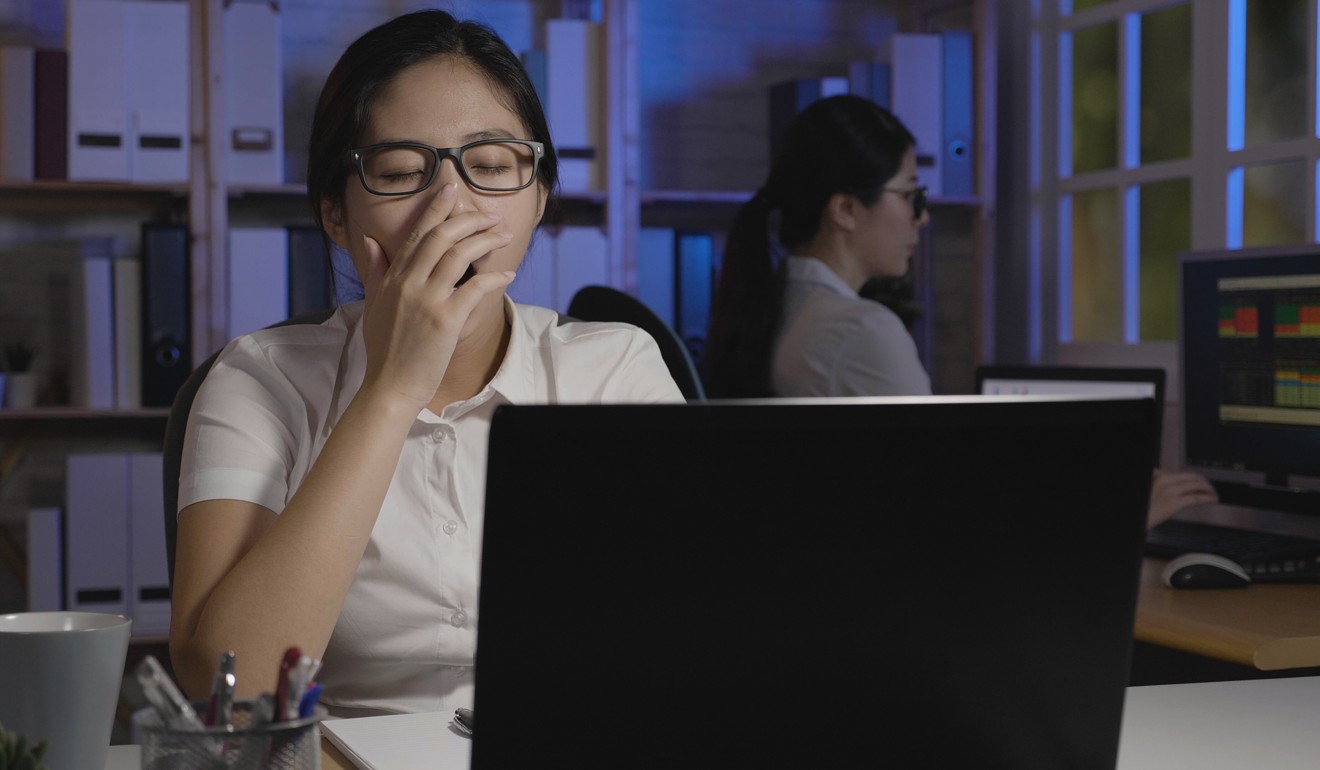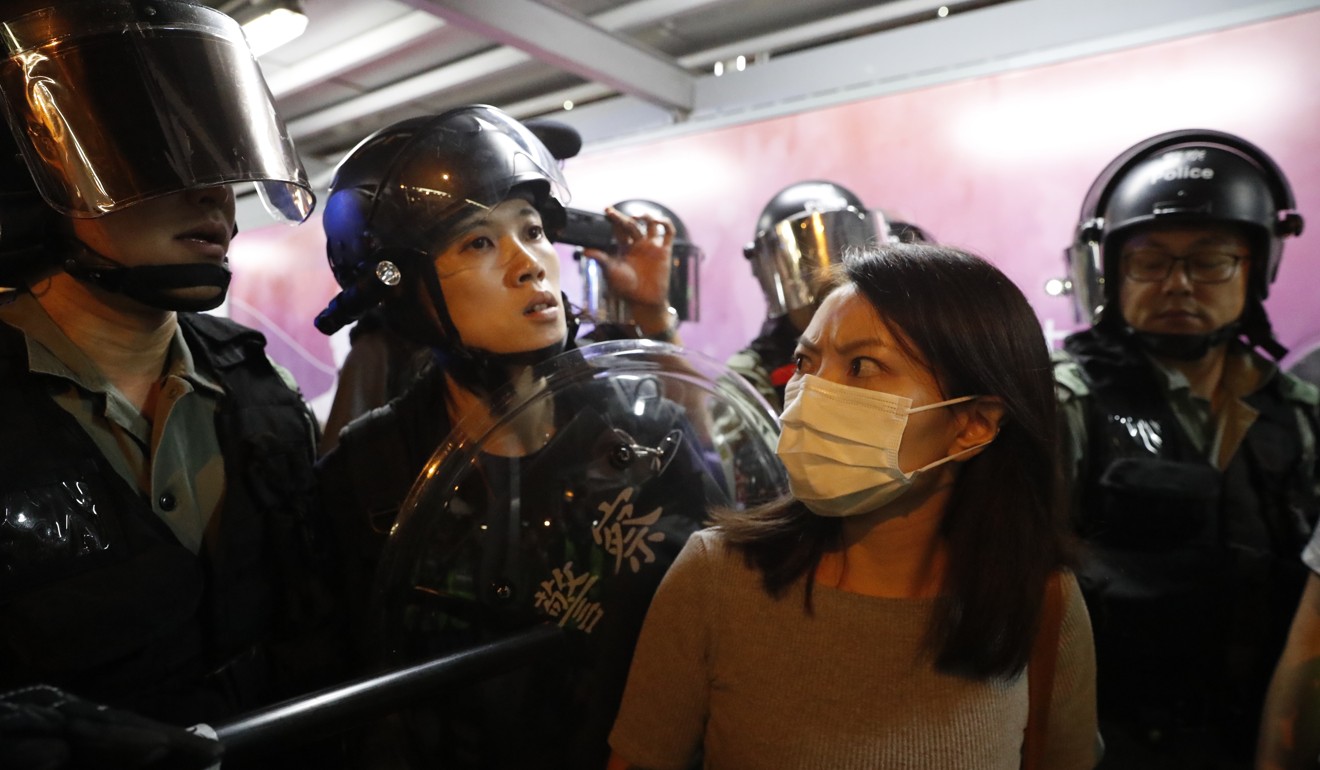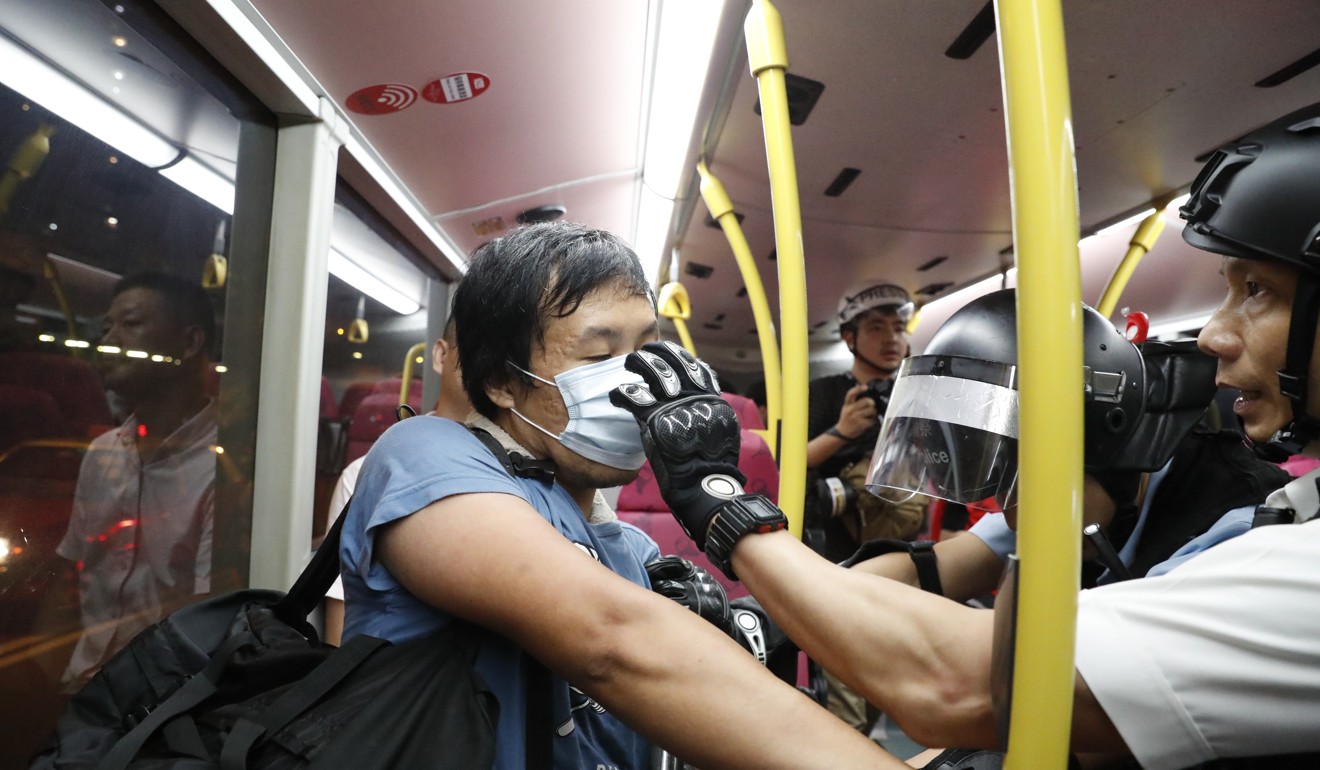
Anti-government protests could be causing insomnia as survey shows more than half of Hongkongers did not sleep enough in August
- 57 per cent of Hongkongers had ‘insufficient’ or ‘very insufficient’ sleep in August, survey finds
- ‘Many stay up till late at night to read protest-related news, which is affecting their sleep,’ psychologist says
More than half of Hong Kong’s population suffered from sleep deprivation in the past month, a survey has found, with an expert saying anti-government protests had taken their toll on residents.
The cause of this was attributed mostly to people staying up late to watch the news, often not clocking up the recommended eight hours of sleep. A psychologist warns the trend has got noticeably worse in recent months.
“Many people stay up till late at night to read or watch latest news related to the protests, and often get very angry and upset at developments, which makes it even harder for them to fall asleep,” Christian Chan, a University of Hong Kong associate professor of psychology, says.
Chan analysed the results of an online survey of 173 working people aged between 20 and 45 in August, which were released on Tuesday.
The survey found 57 per cent of Hongkongers had “insufficient” or “very insufficient” sleep.
On average, respondents only had four hours of sleep and rated their sleep quality as five on a scale of 10 in the week before taking the survey.
Some 46 per cent said they had lost one to five hours of sleep in the previous two weeks due to work, followed by 24 per cent who lost six to 10 hours. Five per cent of them lost more than 15 hours of sleep.
“The results show sleep deprivation is widespread in Hong Kong. Some people even believe that those who don’t need a lot of sleep are more capable and productive, contrary to scientific findings on the profound detrimental effects of sleep deprivation on physical and mental health,” Jun Rivers, co-founder of Sleeep, a sleep-tech start-up which conducted the survey, and which is also the operator of a local capsule hotel, says.

Hong Kong has seen 13 straight weekends of civil unrest with increasingly violent clashes between protesters and police over the withdrawn extradition bill, which would have allowed the transfer of criminal suspects for trial to jurisdictions it lacked an agreement with, such as mainland China.
Prince Edward MTR station closed as crowds call for CCTV footage
Chan says long-term sleep deprivation could pose grave risks to mental and physical health.
“Not having enough sleep will weaken your memory, concentration and judgment. It will also put you in a bad mood, and make you feel constantly annoyed and irritable.”

“People used to sleep late in this city because of work pressures and family and relationship issues. Now, social issues have been added to the list,” he adds.
He says most people in Hong Kong are now aware of the harms of sleep deprivation, but there is still a gap between knowledge and remedial action. For those glued to their mobile phones at night to get protest-related news, his advice is to build a rigorous routine and limit the amount of time spent reading before going to bed.
A 2016 survey found Hongkongers had on average a 1½ hour sleep deficit – the highest among 15 territories in the Asia-Pacific.

Samson Fong from the Hong Kong Society of Sleep Medicine says those unable to sleep could consider a few simple changes in habit, such as using the bedroom only for sleeping and not watching television or surfing the internet, and avoiding vigorous exercise, heavy meals, caffeine and cigarettes at least three hours before bedtime.
‘It was very violent’, says Australian caught up in MTR station chaos
Gabriel Leung, dean of HKU’s faculty of medicine, warned in July that the city’s depression rate amid the current political crisis could possibly be double that of the level recorded during the Occupy protests in 2014. He described the situation as “an epidemic of mental health [issues] linked to serious societal events.”
